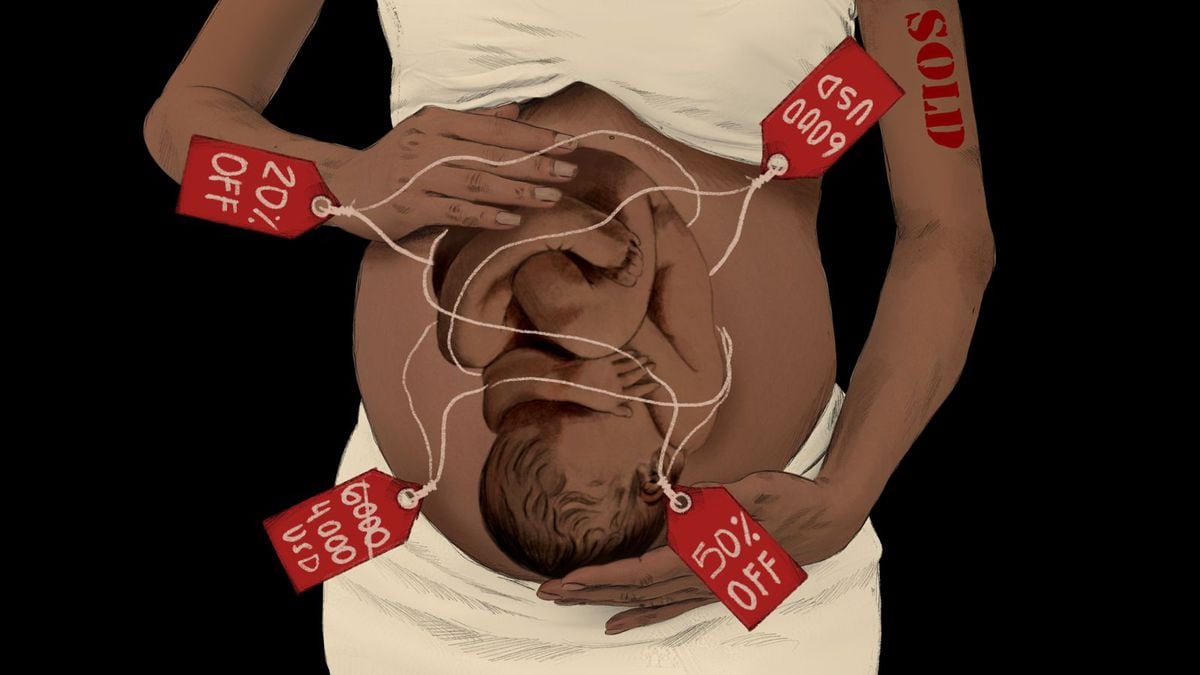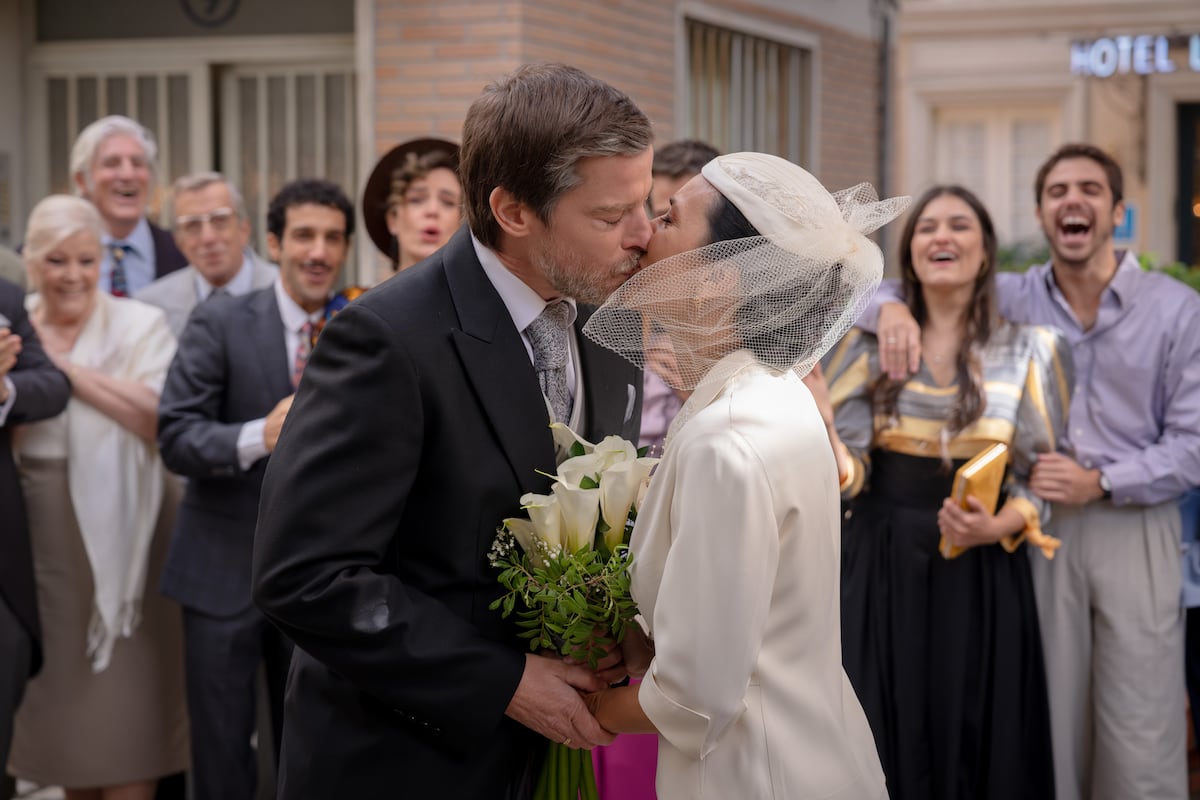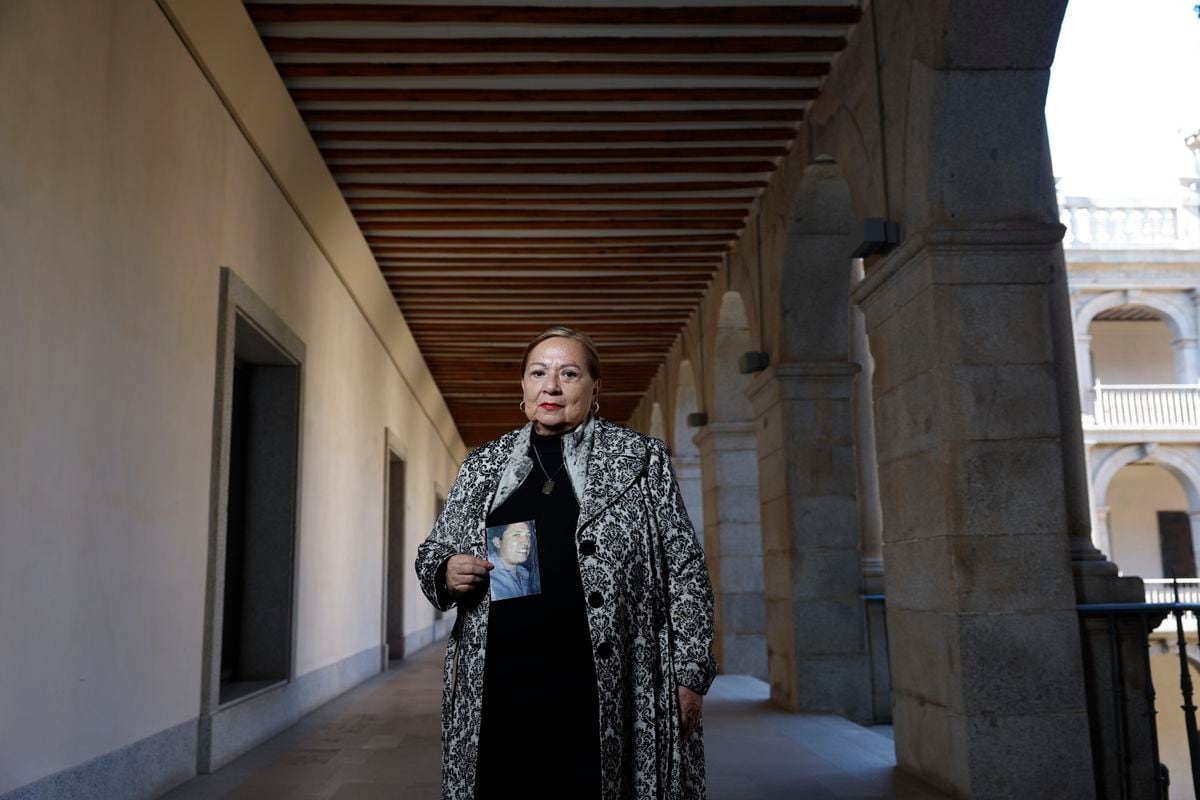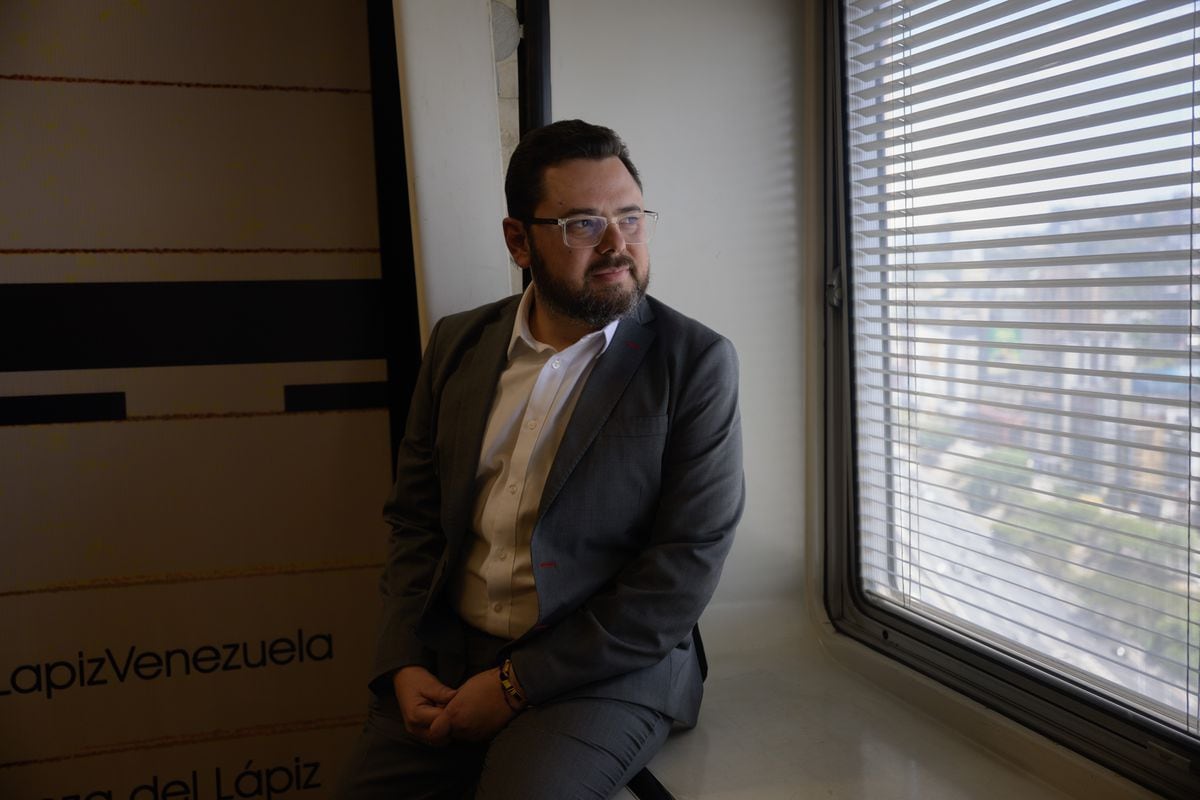A week ago, José Antonio Ocampo could not imagine taking a flight on a Wednesday to go to Cartagena to rest, but today he already has his bags packed.
Just a week ago, President Gustavo Petro announced the departure of seven of his ministers, a government crisis that took him by storm.
Until now the Minister of Finance is satisfied with his work these nine months as the protagonist of the tax reform, the first major reform approved by the Government, but everything is still very recent.
This is the first interview he has given since then and he asks not to talk too much about the president, although he knows it's hard to avoid the subject.
He will answer only the questions he wants.
His departure from the Government was the most surprising.
Ocampo was one of the most valued ministers by very diverse sectors.
His presence in the Executive gave peace of mind to all anti-petrism, who thought that the country's accounts were safe with this respected social democratic economist.
With that mission, Petro gave him the portfolio at the beginning of the term.
On the one hand, to design a consensus tax reform, and on the other, to send a message of calm.
He succeeded in both cases, but the president has now decided to change pace and surround himself with a left-wing cabinet, with which he aspires not to please everyone but to accelerate his reform agenda.
Ocampo is already 70 years old but he does not think about retirement.
He assures that his departure did not take him by surprise, but two months ago he said that he aspired to continue until June 2024. As plans have been brought forward, this summer he will return to his teaching position at Columbia University and resume his activity as a columnist. of opinion.
He looks happy, just a few hours ago he became a grandfather.
One day you are in government and the next a flight to the beach and a granddaughter await you.
Q.
President Petro has said these days that there were several episodes that undermined his confidence in you.
Do you know what he means?
A.
[He gestures with his hand to ask for the next question].
Q.
Did the president give you any explanation for his dismissal?
R.
I think my departure is associated with the political crisis generated by the health reform debate.
He asked the ministers who were not strictly from his movement to change.
Q.
What
does the change respond to?
R.
Due to the difficulty of the outgoing Minister of Health in agreeing on a reform.
Q.
Did your departure take you by surprise?
R.
No. Due to the nature of the political crisis, I saw it as probable that I would leave.
P.
Are you leaving proud?
A.
Very proud.
I fulfilled the task of serving my country.
I think the public recognition I've had is overwhelmingly positive.
Q.
Have you felt supported by the president in these months?
A.
Everything we did was discussed with the president, never anything he was unaware of.
Q.
Did you do what he asked or what you thought needed to be done?
A.
I always tried to respond to what he expected, but I did what I thought was appropriate and I think I did it well.
Q.
What has been your greatest success?
A.
Two hits.
The tax reform will be the most progressive reform in economic history.
And second, in the initial turmoil since the end of October, I was able to clearly calm the markets.
Little is known about this, but I managed to lower interest rates on public debt in pesos by almost four percentage points.
Q.
Did he make any mistake, some imprudence?
R.
No, I believe that I did not commit any imprudence or, when there were complex issues, nothing that had not been consulted.
Q.
Former Minister Prada is going to be an ambassador, would you like to help the Government from some other position?
A.
No. Partly for personal reasons, I have two children in New York.
I will be joining my tenure at Columbia University.
And as my secretary said, remembering when I arrived at the Ministry, I prefer to be called a professor.
Also, I must say that I have been an eternal professor of academic production.
Suddenly I am the most productive economist in the history of Colombia.
Q.
How is a Council of Ministers with Gustavo Petro?
R.
It's very normal.
He would present his points of view and sometimes he would ask a minister to give a presentation on a subject and it would be discussed.
There is a lot of participation of the ministers in the discussions.
Q.
The lateness of the president has already become a state matter.
He will have suffered a lot.
R.
It was a curious practice, but we all adapted to it.
Q.
Do you think there is improvisation in the Government?
A.
No
comments.
Q.
Where is the mandate going now?
R.
In my field, I am pleased that Minister Bonilla is saying exactly that he is going to continue with the policy that I started.
To generate macroeconomic stability, respect the fiscal rule, respect the autonomy of the Bank of the Republic.
Q.
What are the risks to the economy of increasing spending?
R.
The increase in spending has been financed, it is with a reduction in the fiscal deficit.
The tax reform that was approved last year, precisely to be able to make more social spending, was done while maintaining fiscal discipline.
P.
You have left things well tied up.
A.
Yes, in fact we are complying with the fiscal rule, which is a Colombian legal norm.
Q.
What did you feel when Petro asked you to take over the country's economy?
R.
Curiously, he had also asked me last time, when he lost.
So I told him that he couldn't because he was a member of the board of the Banco [de la República] and there was a disqualification for one year.
This time he said it publicly on television in a debate with the candidate I supported, who was Sergio Fajardo.
He said: one of his advisors is going to be my finance minister.
So I told him that if he won, we would talk, basically because he knew that I was not from his political movement.
Q.
What role or weight is given to the economic issue in the Government?
R.
There is very good coordination with the Minister of Commerce, Industry and Tourism, and with the Minister of Agriculture, in particular.
But also with Ecopetrol, with the network of banks and official financial entities, which I believe is called the Bicentennial Group.
I reorganized that entire structure with very clear objectives.
And I achieved the unity of the Federation of Coffee Growers at the moment when it seemed that it was going to divide.
Q.
There you had one of the biggest crises with the president.
A.
No comments.
Q.
When Minister Alejandro Gaviria left the Government.
He thought his time was running out too?
R.
Alejandro Gaviria was part of our group, we met sometimes, especially for the complex issue that was the health reform.
Q.
They were called the moderates.
R.
We had a vision in terms of health of building on what was built.
Trying to improve the system based on the existing system, but with a clear awareness that primary care had to be improved, we all agreed with that.
Q.
Do you understand the fear of some people towards the Petro government?
A.
No comments.
Q.
There are sectors that say that it would be able to bypass the institutionality.
R.
Colombia's institutional framework is strong enough to prevent any adventure in another direction.
I don't think President Petro wants to try.
Q.
In these months has there been more of the left?
R.
I have always been a social democrat.
No one can dispute what my orientation is.
I have been consistent, even in my schools of economic thought.
I am a mixture of Latin American structuralism with the Keynesian school.
Q.
How could the path of rapid growth be recovered?
R.
Also ask the Europeans and the United States.
The international context continues to be very complex, because high inflation has led to high interest rates.
The Federal Reserve and the European Central Bank raised interest rates.
It is expected from both that until inflation drops significantly there will not be a reduction in interest rates to facilitate reactivation.
And there are other very complex international phenomena.
Q.
Is the Government of the change as expected?
R.
As far as I was concerned, the tax reform is the change.
Q.
How do you imagine the country in four years?
R.
It is complex today due to the multiplicity of parties, something very different from the past.
It is a characteristic that makes the politics of negotiation much more complex.
Q.
You haven't answered me.
R.
As a Colombian, I hope that progress will continue on the issue of peace and violence, which are the most critical issues in our country, and there I fully agree with the policies that President Petro has formulated.
I hope there will be an economic recovery after this slowdown, but it also depends on what happens in the world.
And I hope that there will be progress in social matters, although the progress in social matters that Colombia has had since the Constitution of 1991 is very important.
Again, it is building on what has been built.
Q.
He has worked with Gaviria, with Samper and with Petro.
R.
They are very different governments.
Even Gaviria's and Samper's were very different.
Q.
Is this the most complicated?
R.
No, Samper's was very complicated.
Gaviria's was not complicated in that sense, but it was the subject of many controversies and some very interesting internal discussions, in which I participated.
For example, how much is privatized?
There I even had victories with those of us who did not want everything to be privatized, who were the social democrats.
Q.
A couple of times they have proposed him as a candidate for the Presidency.
Would you be interested?
R.
No comments
[laughs].
Q.
But would he return to politics?
R.
I have never been a politician.
I have supported governments, but as a technician.
I have not gone to win a single vote in my life.
Q.
How is President Petro?
R.
He is a person with his own strong visions, he has always had them and one speaks to him in those terms.
I must say that many of us share his ideas, I have always been a defender of agrarian reform.
Q.
Has it been easy to work with him?
R.
At some point, as with every president, one has differences of opinion.
In the tax reform there were no differences.
Q.
Why is there so much fear in Colombia of the word expropriation?
R.
Because of the old historical debates... But curiously there, the agrarian reform law, Law 160 of 1994, which I designed as Minister of Agriculture, is still in force.
The legal framework for agrarian reform was designed by me.
Q.
Will we have to expropriate land?
R.
I think it is not needed.
It can be done through other mechanisms.
The National Land Agency, which I also contributed to creating in the rural reform of Santos...
Q.
You have done it all.
R.
No, no, no, in the agrarian part I have a lot of influence from when I was Minister of Agriculture.
There we designed the agrarian institutions of Colombia.
The National Land Agency is that it had not bought land, so it has to learn how to buy it.
Q.
Don't consider retirement?
R.
No, I am a tireless worker.
Q.
Does it leave the government with more or fewer friends than it had?
R.
Curiously with more friends.
The support I have received in these two weeks has surprised me, from the entire political spectrum, including many allies of President Petro.
Q.
Are you optimistic about the future of Colombia?
R.
I am very optimistic.
In terms of state institutions, the division of powers, suddenly we have the best in Latin America.
We are the second country in the world to have been governed by elected governments, after the United States.
In addition, Colombians are very hard-working and we have a very good business class, very dynamic.
Subscribe here
to the EL PAÍS newsletter on Colombia and receive all the latest information on the country.
Subscribe to continue reading
Read without limits
Keep reading
I'm already a subscriber

/cloudfront-eu-central-1.images.arcpublishing.com/prisa/KIERM4SCFJC2LA677QXEAY7ODU.jpg)




/cloudfront-eu-central-1.images.arcpublishing.com/prisa/Z54YD2WUPOJCLTTEOIMZQJIPZY.jpg)


/cloudfront-eu-central-1.images.arcpublishing.com/prisa/DV57XLR5ZNCGVMKMZE2X46DBP4.jpg)